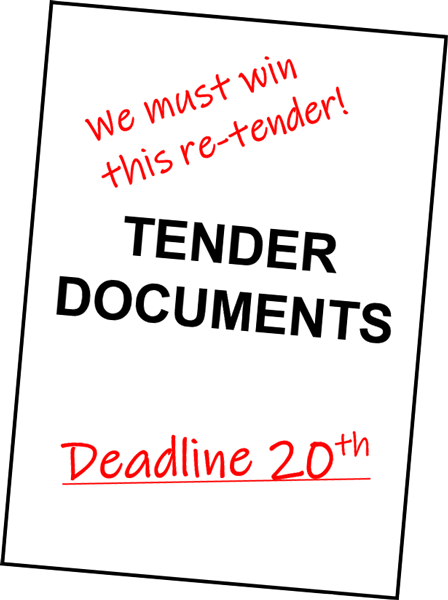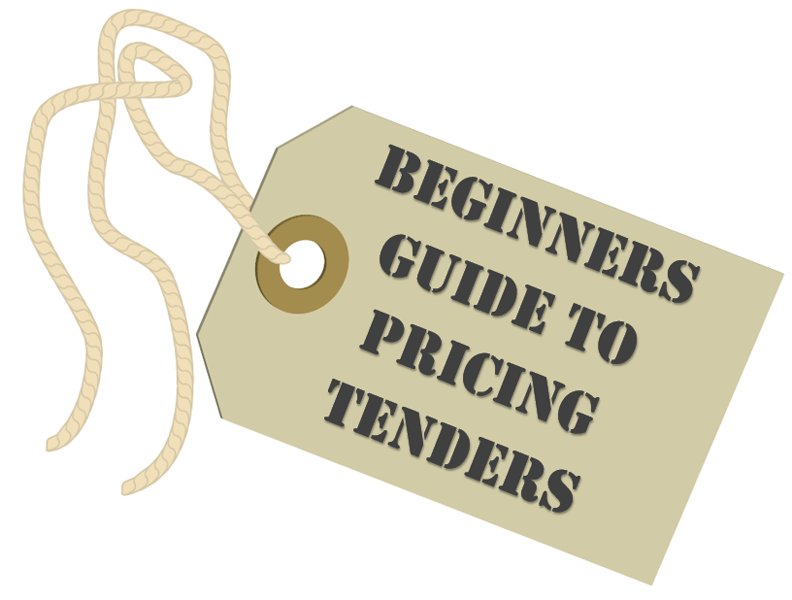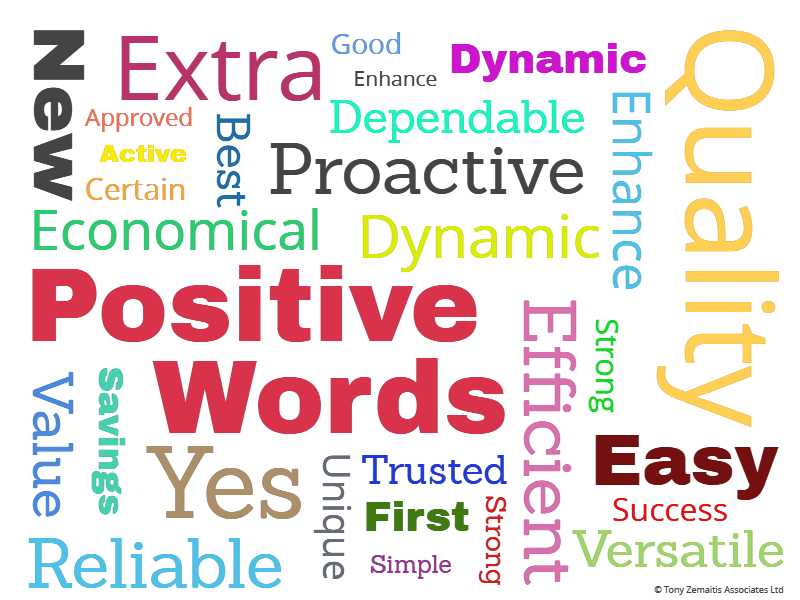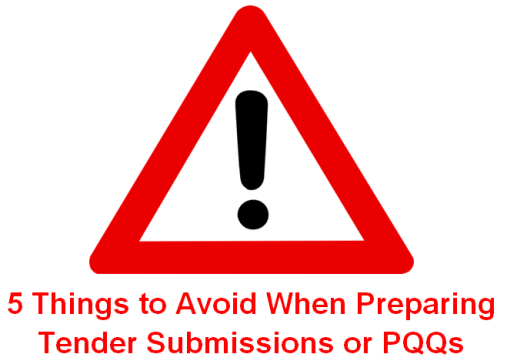How to Re-tender for an Existing Contract
You have to re-tender for an existing contract. What do you do? Don’t worry, this guide to re-tendering will help. It explains what to do and how to avoid some common pitfalls when re-tendering. Follow these steps to increase your chances of keeping the contract.

Re-tendering for an Existing Contract
The need to re-tender for an existing contract is a common reason for clients contacting us for help with a bid. They tend to fall into these categories:
- They have never had to submit a modern, more complex tender before and so are not sure how to approach it. Many clients have held contracts for years. They have won previous re-tenders which were price driven but not so complicated. This is typical of contracts involving public money falling in line with procurement rules.
- A friendly buyer has recommended that they engage a tender consultant. Sometimes the buyer has seen a past submission which was not up to scratch. Or the buyer knows the client’s in-house resources / skills might not be able to create a winning bid.
- It’s a must win tender. If they lose it, it will hurt the business.
Whatever the reason, they want to win the tender and keep the contract.
The starting point is to follow tendering best practice.
This is obvious – do everything correctly and you increase your chances of winning! There’s lots of information about this in our blog. Start with how to answer tender questions and writing positive Tenders. Also, make sure that you avoid making the most common mistakes when re-tendering.
Apart from applying best practice, the following steps will help you win the re-tender:
Don’t Assume They Know All About You
It’s common for business owners to say to me “Our customer knows all about us, so we don’t need to write everything down.”. WRONG!
…How to Re-tender for an Existing Contract Read More »




